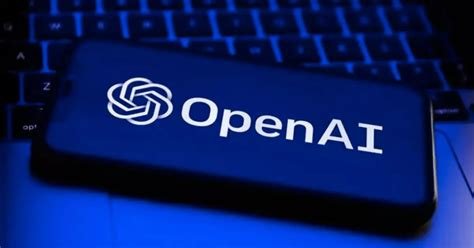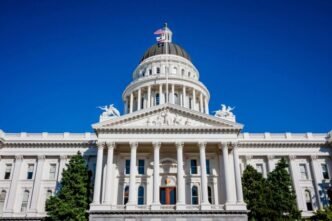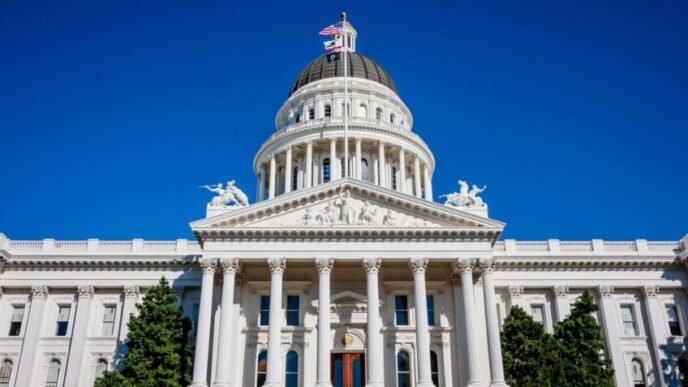OpenAI’s influence in shaping government policy has skyrocketed, with the company ramping up its lobbying spending nearly sevenfold in 2024. From advocating for energy infrastructure to addressing national security concerns, OpenAI’s role in policy-making reflects the growing importance of artificial intelligence (AI) in shaping global priorities.
The Numbers Behind the Effort
According to disclosures filed on Tuesday, OpenAI spent a whopping $1.76 million on lobbying in 2024, including $510,000 in just the last quarter of the year. This marks a significant increase from 2023, when the company’s spending was a mere $260,000. The surge underscores OpenAI’s determination to influence legislative and regulatory decisions surrounding AI.
| Year | Lobbying Spend |
|---|---|
| 2023 | $260,000 |
| 2024 | $1.76 million |
This uptick in spending aligns with the company’s strategic hiring of in-house lobbyists, including Meghan Dorn, a former aide to Senator Lindsey Graham, who joined OpenAI in October 2024.
Key Legislative Focus Areas
OpenAI has concentrated its lobbying efforts on two pivotal pieces of legislation:
- The AI Advancement and Reliability Act (House)
- Proposes the establishment of a government research center dedicated to AI advancements.
- The Future of Artificial Intelligence Innovation Act (Senate)
- Aims to create shared benchmark tests for AI models, ensuring standardized evaluations.
These legislative efforts signify a shift in AI policy priorities from combating misinformation to fostering innovation and securing resources for technological growth.
The Bigger Picture: AI’s National Security and Energy Needs
OpenAI and other tech giants have successfully reframed AI as a critical component of national security and American competitiveness. This narrative has paved the way for discussions about energy infrastructure, a crucial element for training large AI models.
Energy Demands for AI
In September 2024, OpenAI CEO Sam Altman, alongside leaders from Nvidia and Google, met with White House officials to emphasize the need for subsidized energy. Altman proposed constructing five-gigawatt data centers, each consuming as much electricity as New York City. This aligns with broader industry trends, including Meta and Microsoft’s investments in nuclear energy to power AI advancements.
| Company | Energy Focus | Recent Developments |
| OpenAI | Subsidized energy, nuclear power | Proposed five-gigawatt data centers |
| Meta | Nuclear energy | Announced deals for new nuclear power plants |
| Microsoft | Renewable energy | Advocating nuclear solutions for sustainable AI operations |
Lobbying Strategy: A Closer Look
OpenAI’s lobbying strategy reflects a calculated effort to align with influential policymakers and industry stakeholders:
- Strategic Hiring:
- Meghan Dorn, former Senate aide, joined OpenAI in late 2024.
- Matthew Rimkunas, with ties to Bill Gates’ sustainable energy initiative, was brought in to focus on energy policy.
- Key Partnerships:
- Collaborations with defense-tech firms like Anduril highlight OpenAI’s shift towards military applications. In December 2024, the company announced its involvement in developing AI models to neutralize drones around military bases.
- Influence at High-Profile Events:
- OpenAI’s CEO Sam Altman attended President Trump’s 2025 inauguration, alongside tech leaders like Mark Zuckerberg and Elon Musk. These appearances emphasize the industry’s growing camaraderie with government leadership.
Policy Shifts: From Deepfakes to Infrastructure
Earlier Focus: Combating Misinformation
When OpenAI began lobbying in October 2023, the primary concerns were combating deepfakes and election disinformation. The company’s initial efforts supported bills like the No Fakes Act and the Protect Elections from Deceptive AI Act, though these did not materialize into law.
Current Focus: Energy and National Security
As the conversation evolved, energy emerged as the dominant theme. By positioning AI as vital for national security, OpenAI and its peers have shifted regulatory goals to support infrastructure development and reduce regulatory constraints.
Challenges and Divides in AI Regulation
Despite a unified push for AI growth, notable disagreements remain within the industry and government:
- H-1B Visa Policies
- While some tech leaders advocate for expanding visa programs for noncitizen AI researchers, this has drawn criticism from Trump administration allies like Steve Bannon.
- Open vs. Closed-Source AI
- Companies like OpenAI and Google maintain closed-source models, citing safety concerns. In contrast, Meta’s open-source approach has fueled debates, with figures like Elon Musk criticizing closed practices.
- Bias and Free Speech
- Content moderation in AI models varies significantly. Musk has criticized what he perceives as “wokeness” in AI, while Altman has acknowledged the complexities of achieving a universally unbiased system.
OpenAI’s Vision: Balancing Growth and Responsibility
In an October 2024 blog post, OpenAI highlighted its commitment to advancing AI responsibly, stating:
“AI is a transformational technology that can be used to strengthen democratic values or undermine them. Democracies should take the lead in AI development.”
This vision has influenced OpenAI’s decisions, including its reversal of a policy against working with the military and its advocacy for energy infrastructure aligned with national priorities.
Looking Ahead: The Road to 2025 and Beyond
OpenAI’s lobbying efforts are part of a broader trend where AI companies seek to shape the future of technology policy. As the White House repeals previous executive orders and enacts new ones to accommodate AI’s growth, companies like OpenAI are poised to play a critical role in defining this new era.
- Major Investments:
- OpenAI, Oracle, and SoftBank plan to invest up to $500 billion in data center projects, announced in partnership with the government.
- Upcoming Briefings:
- On January 30, 2025, OpenAI is set to participate in a closed-door briefing on its development of a powerful new AI agent.
Conclusion
OpenAI’s lobbying efforts underscore its growing influence in shaping AI policy. From advocating for energy infrastructure to addressing national security concerns, the company is redefining the priorities of technology regulation. As AI continues to transform industries, the collaboration between government and tech leaders will play a pivotal role in determining its trajectory.
For more insights on the intersection of technology and policy, visit OpenSecrets.org.













